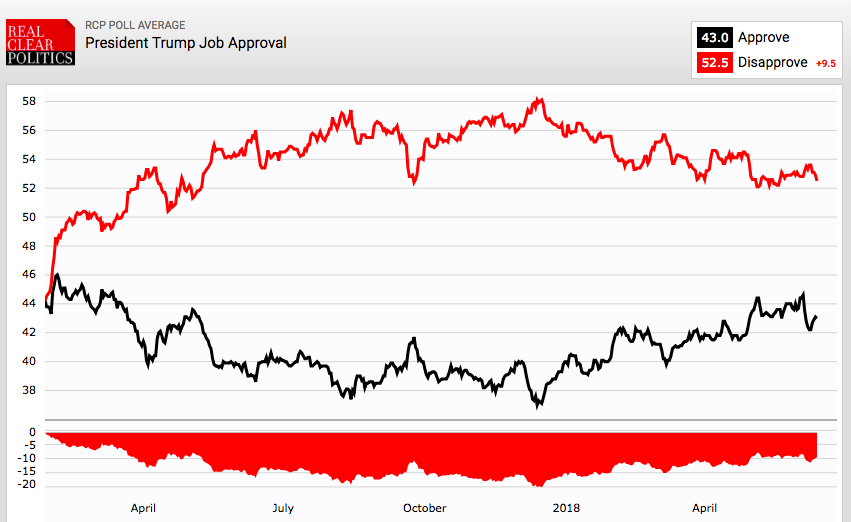The new Morning Consult state-by-state polling on President Trump’s approval are out, and The Donald’s numbers in New Hampshire keep heading down. He’s underwater by -15 points in the latest poll.
It wasn’t always this way. In 2016, Trump narrowly lost New Hampshire to Hillary Clinton 47.6 to 47.2 percent. In Morning Consult’s January 2017 poll, Trump began his presidency above water in the Granite State, 45 approve/44 disapprove.
And now? Trump is down big time: 41 approve/56 disapprove–a drop from 43 to 54 percent in March. What’s Trump’s problem? Undecided voters have shifted strongly to the “disapprove” column. His approval hangs in the low 40s while his negative number has soared by 12 points since he took office.
Trump’s New Hampshire woes are reflected in the nation as a whole. When he first took office, President Trump had a net positive approval rating in 38 states. Today, that’s down to 24 states, and his overall approval rating–which has recovered from its lows last December–is still an unimpressive 43/53 percent in the RealClearPolitics average.
The conventional wisdom is that there is a direct correlation between a president’s approval rating and his party’s performance in midterm elections. A Gallup analysis from 2010 found:
“Since 1946, when presidents are above 50% approval, their party loses an average of 14 seats in the U.S. House in the midterm elections, compared with an average loss of 36 seats when presidents are below that mark.”
And that was before President Barack Obama’s 63-seat “shellacking” in 201o.
As NHJournal has previously reported, the once-shrinking Democratic advantage on the generic-ballot question has returned, with Democrats +9 on the question of which party voters would rather be represented by in Congress. That is no coincidence.
Numbers-cruncher Harry Enten says, “there’s a high correlation between Trump’s approval rating and where Republicans and Democrats stand on the generic congressional ballot.”
All of this is bad news for New Hampshire Republicans hoping to pick up a House seat in November. New Hampshire, with a state government in GOP control but a congressional delegation made up entirely of Democrats, is still a swing state. But with President Trump, the “swing” is currently all going the wrong way for Republicans.


